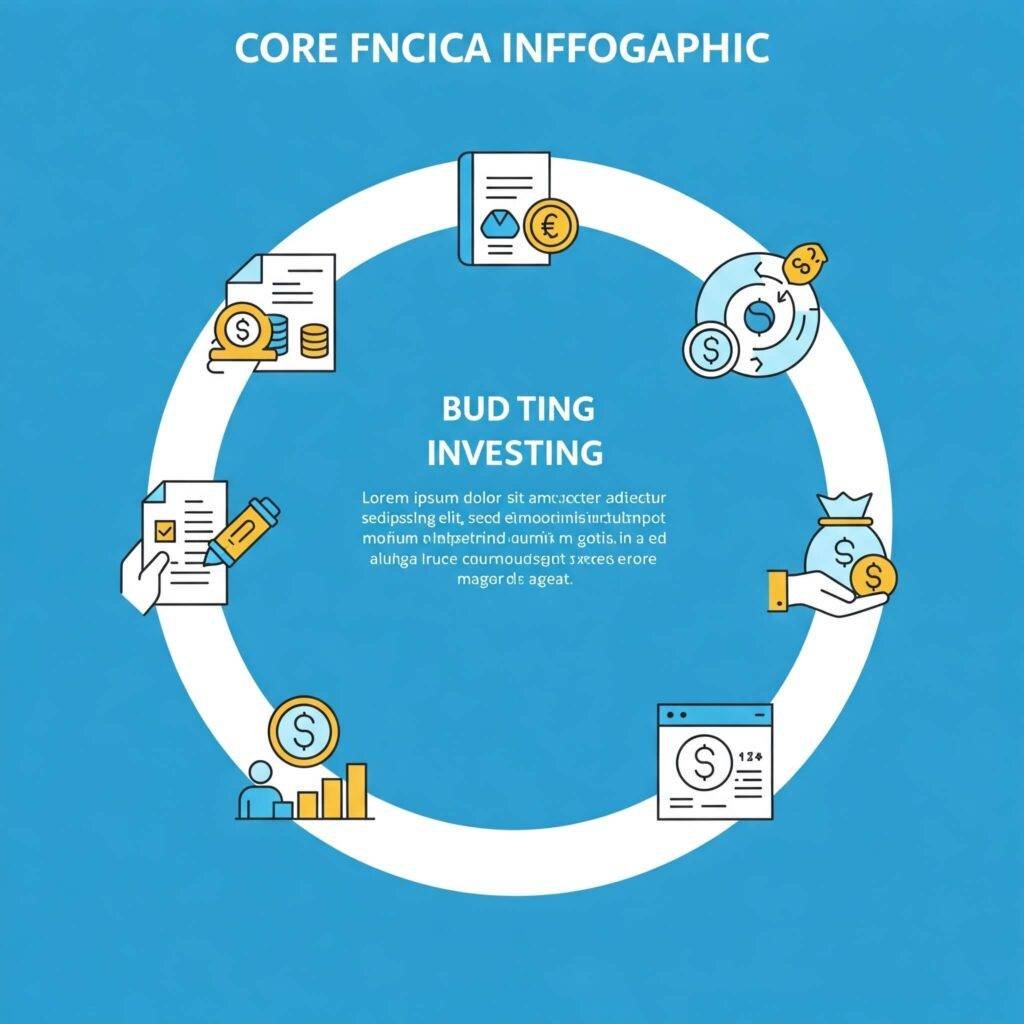Financial education is the foundation of smart investing. Whether you’re a beginner dipping your toes into the stock market or a seasoned investor managing a diverse portfolio, understanding the principles of personal finance and investment strategies can make or break your financial future. This blog post dives into what every investor needs to know about financial education, offering actionable insights, real-world examples, and practical tips to help you build wealth confidently.

Why Financial Education Matters for Investors
Financial education equips investors with the knowledge to make informed decisions, avoid costly mistakes, and achieve long-term goals. Without it, even the most promising investment opportunities can lead to losses due to poor money management or misunderstanding market dynamics.
- Avoid Pitfalls: A 2021 FINRA study found that 65% of Gen Z investors lacked basic financial literacy, leading to impulsive decisions like chasing “meme stocks.”
- Build Confidence: Understanding terms like “dividends,” “compounding,” or “risk diversification” empowers you to navigate the stock market with clarity.
- Maximize Returns: Financially literate investors are more likely to create diversified portfolios, reducing risk while optimizing growth.
Real-World Example: Sarah, a 30-year-old teacher, started investing without financial education. She put all her savings into a single stock, which tanked during a market dip. After taking an online financial literacy course, she diversified her portfolio, reducing risk and earning steady returns.

Key Components of Financial Education for Investors
To succeed as an investor, you need to master several core areas of financial literacy. Below are the essentials every investor should focus on:
1. Budgeting and Money Management
Financial education starts with understanding how to manage your income and expenses. A solid budget ensures you have funds to invest without jeopardizing your financial stability.
- Track Spending: Use apps like Mint to monitor where your money goes.
- Save First: Allocate a portion of your income to savings and investments before spending on non-essentials.
- Emergency Fund: Aim to save 3-6 months of living expenses to protect your investments during unexpected events.
2. Understanding Investment Vehicles
Not all investments are created equal. Financial education helps you understand the pros and cons of different options, from stocks to bonds to real estate.
- Stocks: Offer high growth potential but come with volatility.
- Bonds: Provide stability but lower returns.
- ETFs and Mutual Funds: Allow diversification with lower risk than individual stocks.
Actionable Tip: Start with low-cost, diversified ETFs if you’re new to investing. Resources like Vanguard offer beginner-friendly options.
3. Risk Management and Diversification
Financial literacy teaches you how to balance risk and reward. Diversification—spreading investments across asset classes—reduces the impact of market downturns.
- Don’t Put All Eggs in One Basket: Invest in a mix of industries, geographies, and asset types.
- Rebalance Regularly: Adjust your portfolio to maintain your desired risk level.
Real-World Example: John, a tech enthusiast, invested heavily in tech stocks. When the sector crashed in 2022, he lost 40% of his portfolio. After learning about diversification, he added bonds and international ETFs, stabilizing his returns.
4. The Power of Compounding
Compounding is the secret weapon of wealth building. Financial education helps you understand how small, consistent investments can grow exponentially over time.
- Start Early: A $5,000 investment at age 25 with an 8% annual return could grow to over $100,000 by age 65.
- Stay Consistent: Regular contributions amplify compounding’s effects.

How to Build Your Financial Education
Ready to boost your financial literacy? Here are practical steps to get started:
- Take Online Courses: Platforms like Coursera and Khan Academy offer free or affordable courses on personal finance and investing.
- Read Books: Classics like “The Intelligent Investor” by Benjamin Graham or “Rich Dad Poor Dad” by Robert Kiyosaki provide timeless insights.
- Follow Reputable Sources: Websites like Investopedia break down complex topics into digestible content.
- Join Communities: Engage with forums like Reddit’s r/personalfinance or local investment clubs to learn from others’ experiences.
- Work with a Financial Advisor: For personalized guidance, consider hiring a certified financial planner (CFP).
Actionable Tip: Dedicate 1-2 hours a week to learning about investing. Even small efforts compound into significant knowledge over time.
Common Financial Education Mistakes to Avoid
Even with the best intentions, investors can fall into traps. Here’s what to watch out for:
- Chasing Trends: Avoid jumping on bandwagons like cryptocurrencies or hot stocks without research.
- Ignoring Fees: High management fees can erode returns. Opt for low-cost funds.
- Emotional Investing: Fear or greed can lead to panic selling or overbuying. Stick to a disciplined strategy.
Real-World Example: In 2020, Lisa invested heavily in a trending biotech stock based on social media hype. When the stock crashed, she lost 70% of her investment. A focus on financial education helped her adopt a research-driven approach, leading to better outcomes.
The Long-Term Benefits of Financial Education
Investing in financial education pays dividends—literally and figuratively. Here’s why it’s worth the effort:
- Financial Independence: Knowledge empowers you to achieve goals like early retirement or buying a home.
- Resilience: Educated investors are better equipped to weather market volatility.
- Legacy Building: Teach your family about money management to create generational wealth.
Data Insight: According to a 2023 National Financial Educators Council report, individuals with high financial literacy are 3x more likely to achieve their financial goals than those with low literacy.
Conclusion: Start Your Financial Education Journey Today
Financial education is not a luxury—it’s a necessity for every investor. By mastering budgeting, understanding investment options, managing risks, and leveraging compounding, you can build a secure financial future. Start small, stay consistent, and seek out reputable resources to guide your journey. The sooner you invest in your financial literacy, the sooner you’ll see your wealth grow.
What’s one step you’ll take today to boost your financial education? Share your thoughts in the comments below!
Outbound link:

